This Survivor Just Delivered Her One-Millionth Meal to Patients Fighting Breast Cancer
Updated: Oct. 20, 2023
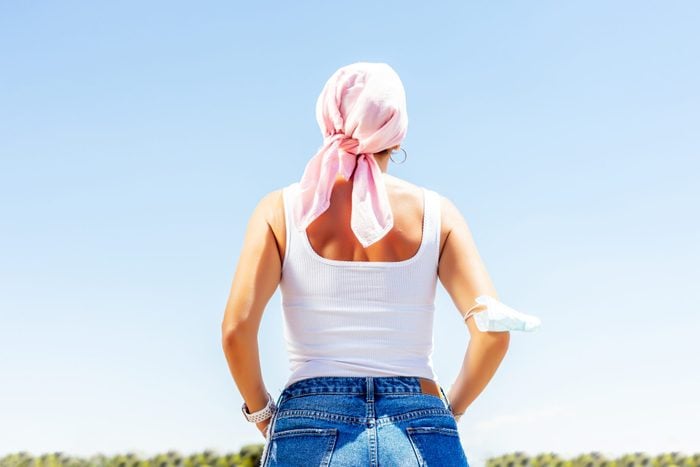
Would this baby lose two moms to the same breast cancer—before she started kindergarten? Not if Heather Salazar had anything to do with it.
The black pleather skirt and hot pink wig were the first things Heather Salazar noticed as the 23-year-old woman strode confidently across the grocery store parking lot. “She exuded life and personality,” Heather recalls. “It was easy to forget that she was fighting terminal breast cancer.”
Heather, then 29, knew this meeting would be important—they’d be talking about adopting this young woman’s baby, after all—but she had no idea how much it was about to completely change the trajectory of her entire life. “I couldn’t wait to give her a hug, my stomach had butterflies,” Heather recalls. But Alexis walked straight past Heather then up to her husband Steve, and said, “I’m sick. I need help with my baby. And I want her to have a better life.”
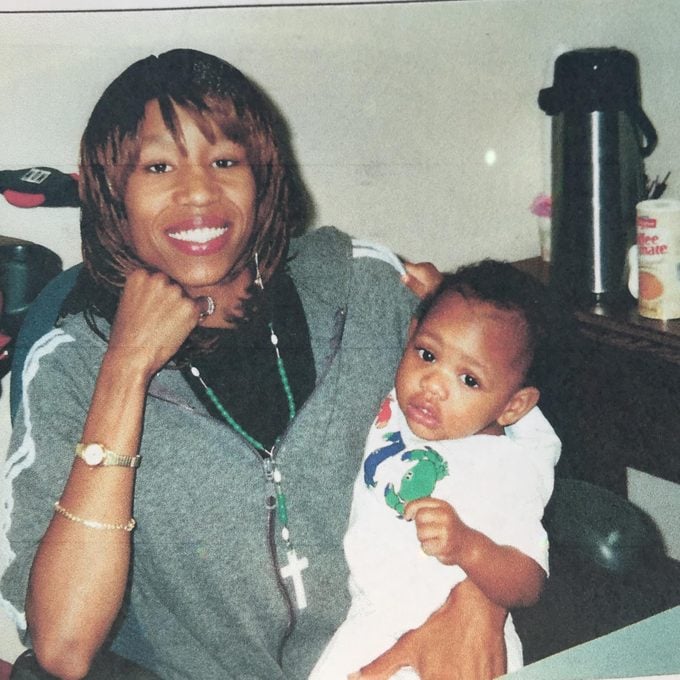
Alexis had stage four ER/PR- HER2+++ breast cancer, an extremely aggressive form of breast cancer that can be fatal—and, heartbreakingly, would be in Alexis’ case. The young mom knew she didn’t have much longer to live. She needed to find her nine-month-old baby a good home.
Get The Healthy @Reader’s Digest newsletter
Heather was already sold on the idea of taking in baby Lexi—an arrangement proposed by Alexis’ midwife, who happened to be neighbors with Heather’s mom—but Steve needed some convincing. The couple already had three children, the youngest just 18 months old.
“But after meeting Alexis, he was all in,” Heather recalls.
The couple visited baby Lexi multiple times over the next month. Five weeks after meeting Alexis in the parking lot, the Salazars went to court and were granted full legal custody of Lexi.
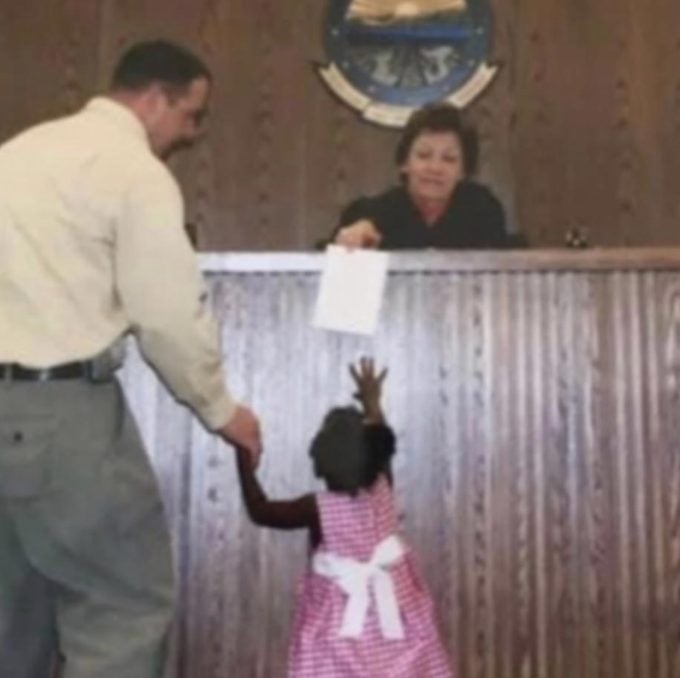
They spent the next year adjusting as a family of six and taking Alexis to treatment. It was during this process that Heather learned how much work, time, effort, money, and energy getting treated for cancer really takes. Before meeting the Salazars, Alexis had been riding the bus to her treatments and toting her infant with her through her grueling chemotherapy. Now, Heather was helping—but it still wasn’t nearly enough to provide everything this young patient needed.
Sadly, after fighting with all that she had, Alexis passed away just after turning 24 years old.
“The hardest thing I’ve ever done was watching her die,” Heather says. “She had so much life and she was terrified to leave her baby. She kept begging to be healed.”
Heather took some comfort in knowing that at least Alexis had died knowing that her child would be safe and loved.
But that was just the beginning of the story.
A Trauma Recovery Expert Lists 6 Gentle Ways To Protect Your Psyche
“Do you need anything?”
When someone gets sick, it’s common to ask “Do you need anything?” While this comes from a kind place, on its own it often isn’t very helpful. In our culture, most people will automatically reply, “I’m fine”—even if they are in desperate need of help. It’s better to offer a specific kind of help (think meals or childcare), but even then it can be hard to know what the other person might find the most relief in. There is one surefire way to find out, however: To get sick in the same way yourself.
One of the last things Alexis had asked of Heather was to promise to do her own breast self-exams. Heather listened—and in 2005, just 18 months after Alexis’ death, she found a lump in her own breast.
In a strange and shocking turn of events, Heather was diagnosed with the same aggressive type of breast cancer that had taken the life of her adopted child’s birth mother.
“I remember that day so clearly. I got the news at 4:03 pm on March 3, 2005. The girls were playing in their room, and I was waiting for my boys to come home from school. I fell to the floor. I thought I was done,” Heather says. “I was so, so scared and angry—would Lexi lose two moms to breast cancer before she was even in kindergarten?”
Determined not to let that happen, Heather started treatment immediately. That same month she underwent a bilateral mastectomy with immediate reconstruction, followed by intensive chemotherapy and a year-long clinical drug trial.
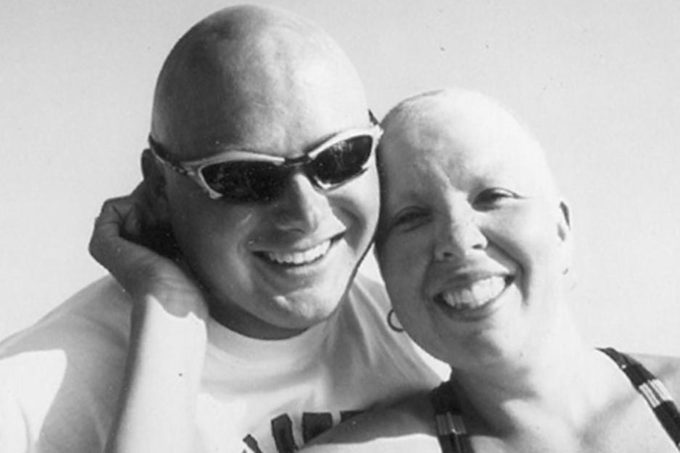
It was grueling, and it was all she could do to just make it through each day. “I thought a lot about Alexis and how she had to do all of this on her own for so long,” Heather says. “I was so fortunate to have so much support. My husband was so supportive and took care of the kids, my mother drove me to treatments, and my whole community rallied around me and my family.”
Alexis’ cancer journey hadn’t included any of that. Heather recognized that her child’s birth mother had been forced to decide between paying medical bills and feeding her family. Because she was underinsured, Alexis experienced an inequitable healthcare system and had received a much lower standard of care.
After a year and a half of medical treatments, Heather was found to be in remission. While she was thrilled to have survived, she couldn’t stop thinking about how different her experience was from Alexis’. One of the biggest differences? The type of help she’d received.
New Study: Artificial Intelligence Detected Breast Cancer 20% Better Than Doctors
How to help someone with breast cancer
Breast cancer treatments can be all-consuming, making it difficult to do even the smallest normal tasks, like house cleaning, grocery shopping, cooking, childcare, and driving. Not to mention how to get to and from treatments and pay for medical care. Heather now knew firsthand how impossible it felt to juggle all that while fighting for your life—even with a great support system. So she decided to do something about it.
“I never wanted anyone with breast cancer to experience what Alexis went through,” she says. “I want everyone to have the support they need.”
Heather became president/CEO of Pink Ribbon Girls (now Pink Ribbon Good) and brought services that would take care of those day-to-day needs for anyone suffering from breast cancer. The goal was to provide patients battling breast and gynecological cancer and their families with delivered healthy meals, rides to treatment, housecleaning, and peer support, all at no cost to the patients so they could focus on healing.
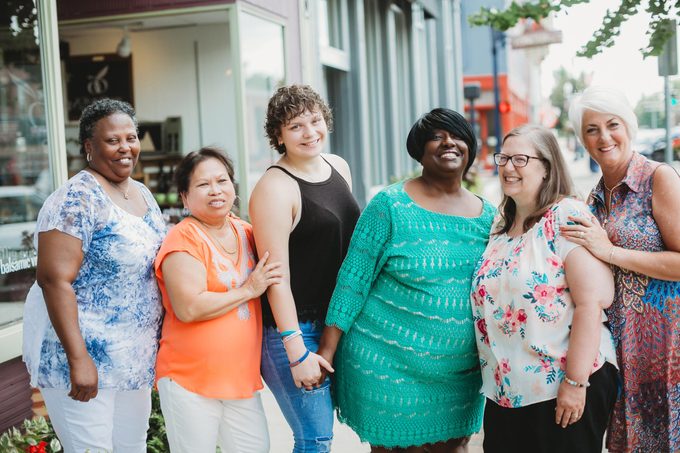
In 2013 the organization earned its first grant and officially started operating in the Dayton, OH area. At first it was run by just Heather and whichever friends and family members she could wrangle into helping her. That first year, they delivered 10,250 meals—an impressive number, but one that felt unsustainable with the shoestring budget she was operating on. At that time she was cobbling together grant money with donations from local fundraising events.
“I had no idea how much need for this there was until we started, and it killed me to have to tell people that I couldn’t help them because I wasn’t able to expand into their area yet,” she says. “We really needed to be statewide—actually, nationwide.”
But how?
An Autism-Friendly Workplace: Florida’s Rising Tide Car Wash
A surprising lift
In March of 2017, Heather was in the Phoenix airport, waiting to fly home after taking Lexi to a soccer tournament. “I was sitting there, just feeling like I was failing in every area—as a leader, as a parent, everything—and so overwhelmed by the 500+ emails in my inbox and how many people still needed help,” she says.
Lexi asked her mom for $5 to get a drink at Starbucks, which prompted a man sitting nearby to ask Heather if Lexi was her daughter. When she answered affirmatively, he asked if she was adopted. Again Heather said yes. Lexi is black, Heather is white; she was used to this question.
What she didn’t expect was what happened next. The man asked to hear their whole story. Trying to get some work done before her flight, she gave him the five-minute version.
That man turned out to be a venture capitalist from a firm in San Francisco who was interested in funding breast cancer projects. When he heard about how Lexi was adopted and Heather’s own struggle, he was interested in helping her charity. It sounded too good to be true, but Heather gave him her contact information in the off-chance he was telling the truth.
He was. One month later, after a meeting with the gentleman and his company, Heather received enough funding to expand PRG outside of Ohio.
“It was just the best feeling to know that I finally would be able to fill that dream and help more people,” she says. “We’re not income-based so we never turn anyone away, and I want to be able to keep fulfilling that promise.”
Serving breast cancer patients today
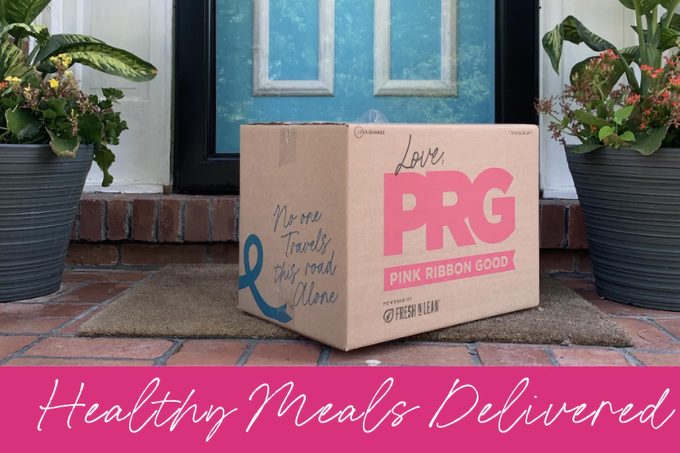
While there are many more states to go, PRG now serves thousands of people in Buffalo, NY; Cincinnati, OH; Columbus, OH; Dayton, OH; the San Francisco Bay Area; and St. Louis, MO.
In June of 2023 delivered their one-millionth meal.
Heather and the PRG team have coordinated partnerships with Uber Health to drive patients to appointments, and Fresh-n-Lean to deliver healthy meals. But the growth hasn’t stopped them from caring for people on a very personal basis. “In the early days, we had just four families—and while we can’t know all of their clients that personally today, we have many clients that have been part of the PRG Family for years and we know about their kids, grandkids, cancerversaries and more,” Heather says.
Her daughters, Cara, now 23, and Lexi, now 22, are an integral part of PRG. Not only do they work and intern at PRG, but they serve as the example for the importance of getting screened for breast cancer at a young age—particularly for people with a family history. Current recommendations say that the first screening isn’t necessary until age 40, but since both young women’s biological mothers got cancer in their twenties and thirties, they are already getting screened. Sadly, they aren’t rare cases.
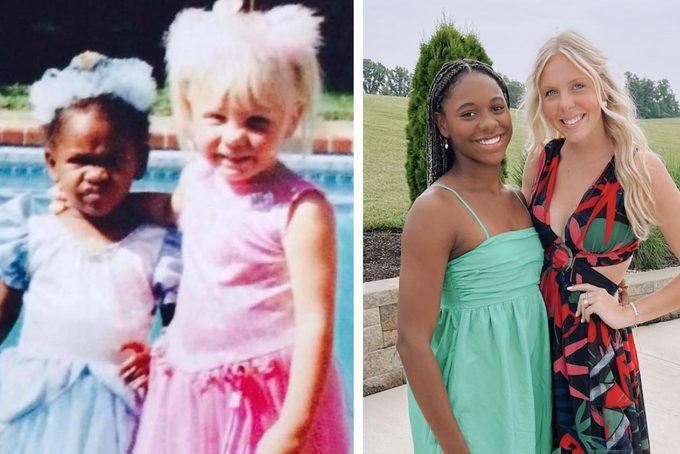
This year Heather will turn 50 years old, an age she once thought she might not see. She couldn’t be happier with where she is now—something she says she owes to Alexis.
“Not only did Alexis give us an amazing addition to our family in Lexi; if it wasn’t for her, I never would have done that self-exam and caught my cancer in time to treat it,” Heather says. “Alexis saved my life.”
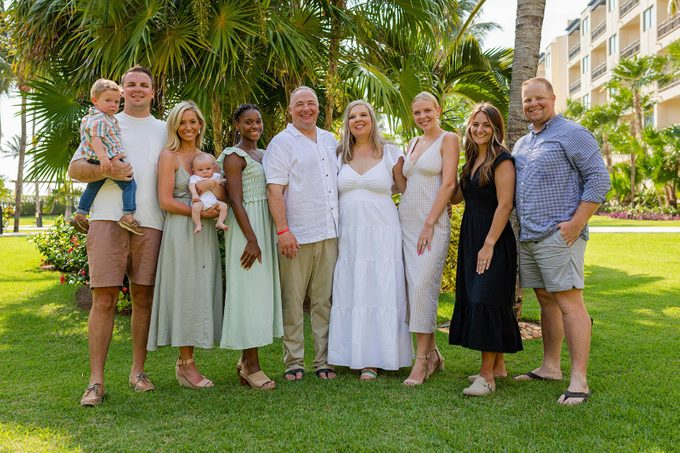
And in return she’s making sure no one—thousands of no ones—travel this road alone.
To learn more about Pink Ribbon Good and how you can support families dealing with breast cancer, check out their website.
Stay inspired and well with The Healthy @Reader’s Digest newsletter and follow The Healthy on Facebook, Instagram, and Twitter. Keep reading:
- This Is the Healthiest Vegetable, According to a Decade of Research
- These Are the Top 4 Vitamins Doctors Take So They Don’t Get Sick During Virus Season
- Flu or COVID Quiz: Which Is It? Expert Doctors List 7 Simple Questions To Help You Know the Difference
- Mandy Moore Gets Candid About a Private Health Struggle
